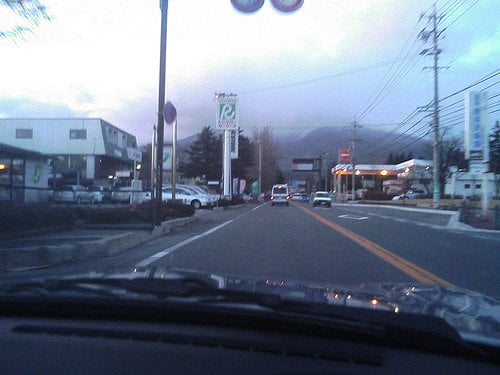The Japanese are some of the longest-lived people on the planet, with women living 84 years and men 78 years, on average. A recent feature story in National Geographic delved into the reasons for the especially long life spans in places like Okinawa, Japan and Sardonia, Italy, and came up with some interesting advice for readers: eat more vegetables and foods like beans, drink red wine, reduce sugar intake, maintain lifelong social relationships, and always have an ikigai, a Japanese word meaning “reason for living” — something you do every day that gives you pleasure and a reason to keep doing it. There are other factors that contribute to Japanese longevity, including its network of competent hospitals and clinics, it’s system of national health insurance for people who aren’t insured through their workplaces, and the thorough regular check-ups called ningen dokku, which literally means “human dock” and implies going into “dry dock” for a top-to-bottom inspection, like a ship. I recently had my first ningen dokku and boy, they really do check for everything: five hours of tests including blood screening, hearing/vision tests, x-rays and ultrasound imaging of internal organs, and more. Everything went smoothly, although there was a small snag with the machine that took a picture of my cornea — Japanese eyes are all brown (although they’ll tell you “black” if you ask them), and apparently, the tint my own blue eyes caused the machine to keep registering an error. The hardest part was the dreaded stomach-cam, a snake-like CCD camera they slide down your throat, important in Japan since stomach cancer is a leading killer here.
It’s a sad time to turn on the television in Japan these days, with nothing but heart-wrenching headlines, it seems. First, a seven year old girl in Hiroshima was killed, surprisingly by a Peruvian man, a rare violent crime committed by a foreigner here (most gaijin-related crimes, when they occur, involve selling drugs). Next, another first grader was kidnapped and murdered in Tochigi Prefecture, not far from where we are, in what may have been a copycat crime. While the loss of any human life is a tragedy and Japan’s rate of murders is very low (1/16 that of the U.S.), there seem to be a disproportionately high number of incredibly cruel and senseless crimes that should never happen to anyone. Recently, companies have begun offering new services for parents who want to make sure their kids are safe, such as a small GPS device you can buy from security company Secom that lets you check where your child is via a web browser (we’ve already ordered ours). Part of the problem is the die-hard Japanese tradition of making kids walk to public school, no matter how far it is (my daughter walks 2 km to her school). Walking miles to school every day builds character, the thinking goes, and my wife and her mother have walked the same exact road to the same school, so this Japanese tradition isn’t likely to change anytime soon.
Capsule toys are called gashapon, an onomatopoeic word that describes the turning of the knob and the sound the capsule makes as it falls out of the machine. In Japan’s vending machine-happy culture, these miniature toys sold in plastic capsules have been popular for decades, and Japan’s toy makers have really worked hard to bring a new level of detail to the toys that are created. Another word for capsule toy is gacha gacha, again describing the sound of the capsules rattling around inside the machine, and we’ve got a cool item for you today: Gacha Gacha Doraemon, a large toy featuring Japan’s famous “cat of robot type” that is a fun capsule toy vending machine game.
Remember that J-List is loaded to the gills with fabulous 2006 calendarsright now, with great anime, JPOP, cute idol, sports and other calendars in stock, all sold only in Japan. Our calendars are going fast, though — just a week ago we had more than 200 different ones in stock, but we’re already down to 160+ as our stock of calendars is depleted. If you’d like to brighten your room or office with a unique Japanese calendar in 2006, we highly recommend that you browse our selection now, before the calendars you want are gone.















